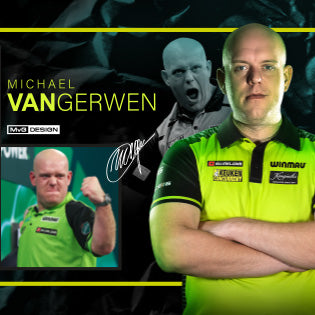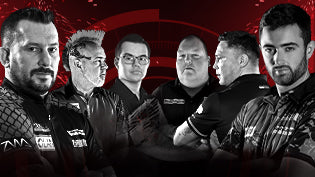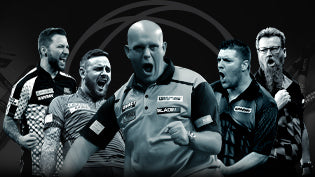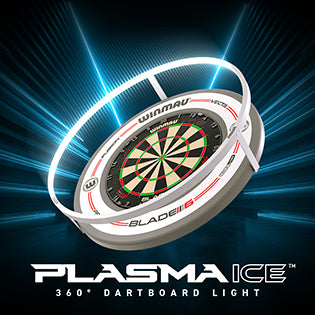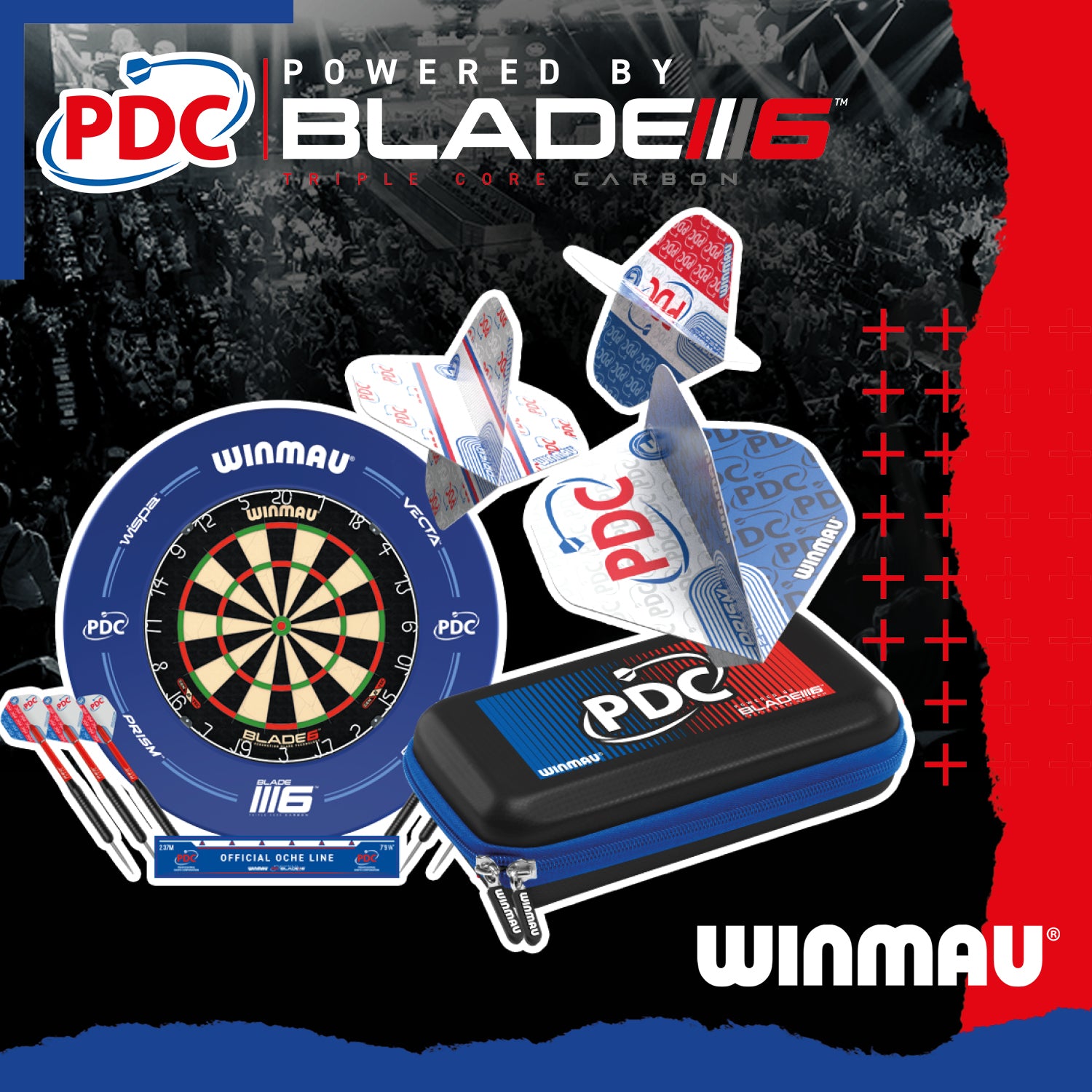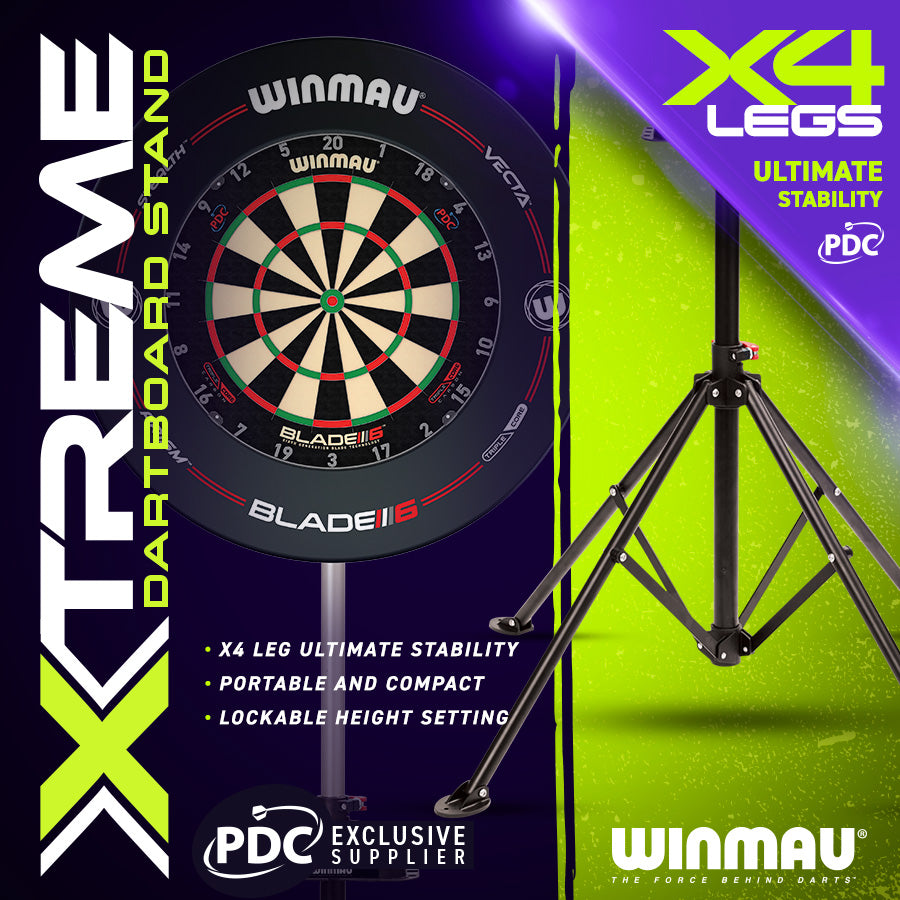DR DARTS NEWSLETTER - PATRICK CHAPLIN - AUGUST'23 EDITION
DARTS HISTORY
(aka Dr. Darts’ Newsletter)
Issue 161 www.patrickchaplin.com August 2023
THE ST. DUNSTAN FOUR – JIM CLARK
In over 35 years of research into the history of darts, I have never ceased to be amazed by the willingness of people I contact to provide me with information about themselves and their lives in darts. Without them I would never have been able to piece together as much of the heritage of our sport that I have.
Sometimes I am approached by darts people who subscribe to Darts History and respond to articles, and, occasionally, I receive feedback via my website, first launched in 1999, www.patrickchaplin.com. This issue features not one but two such responses.
I am also aware that many of you, the subscribers to Darts History are always keen to read news about two things: the News of the World, and Joe Hitchcock and his team St. Dunstan Four.
Thus, you must be able to imagine how thrilled I was when, via my website, I received the following message:
‘Patrick, I was delighted to read your piece on Joe Hitchcock [on your website].
I am the son of Jim Clark one of the St Dunstan Four.’
I remember seeing a copy of the cartoon [see above, published in 1946 in The Dart] as a child. I also remember seeing Joe doing an exhibition with Dad at the Feltham Ex-servicemen’s club in Feltham, Middlesex in the 1950’s. I remember it involved nails and masking the board with a newspaper.
What a shame they did not get the economic opportunities that today’s players have. Thank you for the posting, it made my day. James Clark.’
Years ago, I had been told by the son of another St. Dunstan player, Jim Clow, that ‘Jim Clark’ might have been another name his father used ‘for financial reasons’. Obviously, I believed that for years but now the truth is revealed. ‘Jim Clark’ was for real.
I contacted James asking for more information about his dad. James replied
‘I have tried to remember as much as possible about my father’s life that pertains to his dart-playing times. I have also provided some background, about the man he was, in the hope it will help provide some context to his story.
As I was born in 1944, my earliest recollections will be from the early 1950s. As I have said I do not have any memories of his time with the St Dunstan’s Four or his pre-war exploits. It would be great if this exercise were to throw some light on that period but I understand that this is unlikely. [I will be researching back issue of The Dart for any information about Jim being with the St. Dunstan’s Four so watch this space.]
Dad was born in August 1912 and died in May 1987. He was born into a family of showmen (Fair keeping) so he only had the opportunity to gain a basic education. By the time I came along the family were transitioning from fair keeping to a more conventional life style. What with the war and the austerity of the time it was a tough time for us. We had not yet achieved a conventional home and were living in a caravan in the family yard behind my grandmother’s bungalow in Feltham, Middlesex. It was not until 1960 when we were finally allocated a council flat in Hanworth, Middlesex.
We lived in the yard along with our extended family. My first recollections as to how he was making a living for us is prompted by the sound of a saw bench and the image of him and his brother early on a frosty morning, sawing wood for logs which they then sold. They also did scrap metal dealing until he was able to get a job in the army barracks helping with the movement of the vehicles. Thereafter, as the economy picked up, he was always able to get semi-skilled work in local factories.
He was a quiet, reserved man, quietly spoken, with a calm demeanour which I believe contributed to his dart-playing ability. Looking back, he did not seem to be phased by the occasion, the audience, or critical moments. Whether the shot was brilliant or wayward, the reaction was the same. No fist pumping or pulling faces, he just retrieved his darts and got ready to go again.
During my childhood his best darts years probably were behind him. I can’t remember him describing in detail his early achievements except for the St. Dunstan’s connection. He had also suffered a broken wrist while trying to start a lorry with a starting handle which obviously was a factor. Even so, throughout my childhood and early years I can affirm he was still a very good player.
In those days our leisure activities were the radio, cinema, watching Fulham and Brentford home games (when possible) and the “club.â€_x009d_
The “clubâ€_x009d_ was the Feltham Ex-Servicemen Club, located in Bedfont Lane just south of the railway gates.
(The photograph, above right, shows the members of the Feltham Ex-Servicemen’s Club who won the W. H. Pendrill Convalescent Homes Team Darts Competition in 1956. James’s dad is the gentleman in the centre in the cap. (Photo © James Clark.)
Now long gone, it was the hub of the family’s social life. It was an ideal venue having something for everyone. On entering, to the right was a large bar with two dartboards and to the left was a dance hall that provided a place that families with children could go. At the club I had many wonderful times at the weekly dances and children’s parties, etc. but let’s concentrate on the darts.
Luckily for me the ‘No Children’ in the bar rule was not vigorously enforced and frequently I was able to watch Dad and his friends, playing darts. Most of the time they were playing among themselves. But the club they had a very strong darts team of which Dad was captain. (8 man I think).
At this time in his career, I don’t remember him playing singles competitively. However, it would be interesting to see if any records remain of the clubs’ performance in the team competitions.
(Clearly Jim was a great player and subsequent information (a pewter ashtray and a medal, show that Jim and his team at least made the County finals of the Lord Lonsdale The People Team Challenge competition in 1959/60 season.)
I remember one year in particular, coach parties from other pubs would visit us, and likewise we would visit away venues. Judging by the number of trips that occurred, we must have reached the final. I remember a trip that may have been the final as it involved a long coach trip. It must have been a regional competition and, in my mind, I think the venue might have been Kettering but I’m not absolutely sure. Whatever event it was, it was important as it was on a stage with lighting focused on the play and the room dimmed. We must have won because I have a clear memory of one of my uncles, who was not in the team, being first on the stage to celebrate when Dad threw the deciding game shot. This recollection it probably from the early to mid-1950s.
Also, during this period, Dad, in conjunction with the Club, promoted a monthly darts tournament. I remember accompanying him to install six dartboards, three each side of the ballroom. The tournaments were very popular with darts players from the district competing. There must have been about a hundred people in attendance, mostly participants, but spectators as well. Dad never played in the tournaments as he was busy doing the administration, making the draws, etc. For me it was great entertainment watching the early rounds and the mounting tension as the evening progressed to the final. I remember that prizes (not money) were presented to the winner and runner up. I think also for the high score and highest get out.
The only name of a frequent winner I can recall is Georgie Kemp who I am fairly sure was one of the club’s team players. These tournaments must have been played for a couple of years and would have been a boost to the club’s finances in increased bar takings.
Darts was incredibly popular at that time and all the players who entered the tournament could throw a dart. I think it was an achievement to be regarded as a top player at that time because of the quality and quantity of the opposition.
The above concludes my recollections of the Feltham Ex-Servicemen’s Club and our time living in Feltham.
As previously stated, we moved to Hanworth in 1960. I was now sixteen and Dad was playing leisure darts at the Brown Bear pub and the Hope and Anchor both in Hanworth and both now long gone.
(I will be continuing James Clark’s memories in the September issue. I am also sure that the name of the Brown Bear pub will bring back memories for some of my older readers. If not, the reason will be explained in Part Two.)
THE TOMLIN ORDER – THE AFTERMATH
In early July, I was messaged by a darts player and fan who I had met years ago in a popular London darts pub. He wrote
Relating to the Tomlin Order, we all know 16 became 14 but I recall reading in Eric Bristow’s autobiography that a third player almost went back to the BDO, nearly causing the WDC/PDC not to be.
I lost that book… I can’t for the life of me remember who that third person was and thought you might know. Thank you for your time.
He later added
I was also reading Phil Taylor’s book and apparently “overturesâ€_x009d_ were made to John Lowe and Alan Warriner re. crossing back.
I contacted my friend John Lowe who is “All good and enjoying life.â€_x009d_ He told me
In reply to your question, yes. I was approached by Peter Dyke [of the BBC] who offered me my own roadshow promoting Embassy. It was worth £20K minimum.
In return I would stay with the BDO and defend my World Championship title. He knew SKY TV had said that if one more player leaves the breakaway group, they would withdraw. I said “Thank you, but no.â€_x009d_ I thought about the guys who had put everything on the line.
I must be honest though; I have thought about it many times and again, in honesty, I feel I should have gone down the selfish route and accepted. “Why?â€_x009d_ you ask. Well, once we had come through a very tricky time and things looked secure, the many opportunities created were, to be blunt, seized by opportunists who could see a financial gain. I termed it "Jobs for Mates." My thoughts for others and the future of the sport whilst World Champion, now seem pointless, and I wonder if I was used for the benefit of others.
I am pleased to see how the sport has progressed; players earning a professional livelihood never dreamed of in the past, but a bitter taste and non-respect for some in the sport will not go away. I accept it is the life we live in.
I will never know what the outcome would have been if I had accepted Peter Dyke's offer.
I do not have any knowledge of Alan Warriner being approached, but he was runner up in that year’s World Championship.
Darts fans know that only England’s Mike Gregory and Wales’s Chris Johns returned to the BDO fold. To date, I have not received a response from Alan but will let you know when I do.
DARTOID DISASTER!
As most of you are aware, Paul Seigel has authored the popular (some say "notorious") Dartoid's World column for nearly 30 years and written some fascinating books on darts.
Over those years, he compiled a distribution list of many thousands of subscribers. This was all maintained at a specific company and, somehow, has all been lost. He is currently rebuilding the list. Its sole purpose - is to alert subscribers each time a new column about darts is posted so he needs your help to put you back on the list. To sign yourself up again (or to sign up others) feel free to use this link. It just takes a moment.
https://dartoidsworld.net/subscribe
Of course, you can unsubscribe at any time.
SUBSCRIBING TO DARTS HISTORY
Since I launched Dr. Darts’ Newsletter in February 2010 (see first issue, below), later renamed Darts History, it was always only ever to be available by subscription; darts fans hearing about my work and then writing in to join. I wanted my research to be available only to those who are/were genuinely interested in the history of our great sport and keep it FREE. It was always my intention (and continues to be) advert-free: which it is, except, of course, the recognition of the sponsorship from the WINMAU Dartboard Co. Ltd., supporting my research.
I am always happy for subscribers to forward Darts History to any or all of their friends in darts and encourage them to subscribe. The combination of direct approaches and word of mouth has resulted in Darts History having many hundreds of readers in more than 120 countries. Long may it continue. Thank you all for joining my darts history journey.
For example, James K. from Marbella, Spain wrote recently:
‘Dear Patrick. Thank you very much for placing me on your Darts History subscribers list. I have been receiving it for a while from my good darting friend, David Mason, and really look forward to receiving it direct. I have let David know I am now receiving Darts History direct. He has been telling me to do so for ages. If there is ever a charge, please let me know and I will be happy to pay by overseas bank transfer.’
Many readers have approached me over the years, suggesting that I make a charge for Darts History but, of course, that will never happen.
HOME INTERNATIONAL – FEEDBACK
Thanks to everyone who provided feedback relating to my special edition (#160) featuring the first Home International. James K. (mentioned above) was one of the first to write in:
‘Patrick, I love the history of Darts. This month’s edition was tremendous.
Thank you for the superb write up in the July Darts History on the origin of International Darts. I never knew how International Darts started and your great write up certainly puts us darters in the picture.
It was a fantastic edition and darts certainly would not be the great sport it is today without early darting people like Eddie Norman, his brother Peter, and caller Jack Price.
This happened long before I got involved in darts (I was two years old in 1973) but Eddie’s team certainly led the way and others have followed but we enjoying the sport of darts today must always be very grateful to what and who started off the great surge in darts.’
Rob G. commented
Another good read Patrick. Love the bit about the home internationals. It makes you think how individuals come up with ideas but organisations take over. That’s life I suppose but hats off to those individuals.
Chris Lovell sent this image of a Home International trophy and said:
‘Patrick. Another good article. Is this the trophy that relates to your article? It recently sold in the BDO Darts liquidation sale in its sorry state, realising only £250 under the gavel.’
I replied:
‘Chris. What you’ve shown me is definitely an early Home International trophy: probably one of the earliest, unfortunately it is not dated.
But it’s not the first, as the BDO, whose name is in engraved on it, were not involved with the organisation of it, except that Olly Croft managed the successful England team.
As mentioned in my special article in #160, the first Home International was organised by Eddie Norman and the West of England Darts Organisation. The BDO didn’t fully become involved until the third Home International so I guess this trophy was introduced then.’
(Can anyone help me find out when the above trophy was actually introduced?)
And from Dubai, Ben Sheppard wrote
‘Hi Patrick. I received the July Darts History today and thank you so much for the wonderful history of where and how International Darts started. I have re-read it three times and it got more interesting each time. I will certainly read it again and memorise the history.
We in darts have a lot to thank Eddie Norman and those early darts pioneers of 1973 for, something that is sometimes taken for granted today by those in the professional world of darts. Would there even be professional darts today without these giants of the past getting the ball rolling fifty years ago? I was not even born until 1988, so the event took place long before I got interested in the sport of darts.
Incidentally I saw in the article you mentioned Eddie Norman had also been awarded an MBE; a very well deserved one I would say. Kindest Regards.
I replied
‘Dear Ben, I’m so pleased that you enjoyed my history of the first Home International and will be reading it again and again. And you are right, of course, that without the darts pioneers of the 70s, darts would be nowhere today.’
Then Brian H. added
‘Morning Patrick. Hope you are well. Thanks for another great read.
I went to a Home International match at the Sunderland Empire, England v Scotland (1979?) & set off for Cardiff on my motorbike (the following year, I think) to watch Wales v England but a freak snow storm put paid to my trip before I'd gone 50 miles!
As always, interesting to read of the beginnings of such events & how Eddie's vision became a reality. Sad also to see the event commandeered by the BDO for their own ends under the guise of "for the good of the game" or so it seems.
Looking forward to your next offering already. Take care!’
From Porto, Portugal another David writes
‘Dear Dr. Darts (Patrick). Thank you very much for the terrific special edition of July Darts History. What a great read.
It was amazing to read about the origins of International Darts. We younger players of our great sport can only look in awe and admiration at Eddie Norman who helped to put darts on the map before I was even born and before the days of the BDO and PDC. The sport of darts owes Eddie Norman a big thank you. The July Darts History was really a fantastic read and without your great writing it was darts history that would be lost for ever for future generations of our great sport.
My Kindest Regards to you and the team.’
Thanks David. I will, of course, pass your kindest regards to my ‘team.’ That’s only me and my wife Maureen (chief proof-reader) who appreciate your feedback.
Regular provider of feedback, Mick S. wrote
Hi Patrick. Well, as ever, I’m impressed what a fantastic read you have put so much into this that it’s like being there? Very, very, informative. Blimey, you have done yourself proud again Patrick. Well done.
On another subject, Mick added
As for Fallon [being awarded an MBE] I have mixed views. It’s great to see Ladies Darts recognised in this way but, for me, Deta Hedman has done masses for Ladies Darts over many years.
Also, what about Phil Taylor and his achievements? I doubt they will ever be equalled. Just my thoughts.
Personally, I am happy with Fallon’s award based on her achievements thus far. I just think that it was a little early, especially when compared to Trina Gulliver’s multiple world championship successes. I also agree that Deta is deserving of an award. As for Phil Taylor receiving an award… Well he nearly did didn’t he but let himself down.
DARTBOARD MAINTENANCE
Enquirer Mark writes:
‘I collect dartboards and managed to get a dartboard featuring Portsmouth FC and Cardiff City FC and the FA Cup Final of 2008. I am led to believe they were commissioned by Cardiff City FC and given to club employees.
As a Pompey fan and due to the fact that Portsmouth won the final, I doubt there are many that remain. I also managed to get Harry Redknapp to sign the back as he was Portsmouth manager on the day.
My question is that it was stored in a lift and there is dust dirt on the front of the board which will not move with light application of a tooth/nail brush. Are you aware of anyone who cleans/restores dartboards?’
I told Mark:
‘I have always thought that the only way to try and improve the condition of an old/faded bristle board was by brushing gently and NOT applying any liquid of any kind.
I recently spoke to a top man at WINMAU who confirmed this. He told me "The only way to clean any dartboard is with some form of brush and ZERO liquid!"
Soaking a bristle board will ruin the board (as shown in the photo, above). Even though bristle boards were introduced by NODOR in the 1930s, and all boards sold had the legend ‘DO NOT SOAK’ on the reverse, that did not ensure that people read it. It being so common to soak the former wooden (elm/poplar) dartboards overnight to improve the playability, soaking was the very last thing you shown do with a bristle board.
Apparently, there are still people who soak bristle boards thinking that would help but they (the boards) go mouldy and buckle.
Gently brushing it is all you can do.
CAN YOU HELP JEFF FROM OKLAHOMA?
Here’s an enquiry from Jeff Goodrich of Edmond, Oklahoma. I have never seen a set of ‘darts’ like this (left) before. In fact, I am not totally convinced that they are actually ‘proper’ darts at all. Jeff wrote:
‘Dear Dr. Chaplin,
I recently found a partial set of unusual darts at a thrift/antique store near Charleston, South Carolina.
They are all-metal (attract magnet) and 6-1/2â€_x009d_ long. The balance point is rearward where the stabilizers meet the shaft, requiring that they be thrown by the tip. They are not sharp but each has tip wear. Have you encountered anything like these before? Thank you in advance.
I replied
‘Hi Jeff. I've not seen these darts before so I can only guess that by their construction, they are made for playing outside rather like the Lawn Darts we had/have here in the UK. They tended to be all wooden or metal with points like proper darts to ensure penetration in the ground.’
Being unable to provide a definitive answer, I am coming to you, my readers, to see if you can help. Have you ever seen these ‘darts’ before? If so, or if you have any theories, please write to me at patrick.chaplin@btinternet.com. Thanks.
ERIC BRISTOW MBE – A MEMORY
Visiting my website in August, Steve Foley, a former Kent and London County player provided feedback on the article I posted in 2019 relating to the untimely death of Eric Bristow the year before. (https://patrickchaplin.com/2019/09/16/eric-bristow-1957-2018/ )
Steve wrote:
“I remember Eric in Los Angeles. We were there for the Los Angeles Open. “Hey Steveâ€_x009d_ he’d say, “Let me know when your play and I’ll chalk for you.â€_x009d_ That’s the kinda good spirited, open hearted, genuine person he was. He always wanted to be involved.
We, both Eric and myself, go back to days in London playing super league, North London super league. Man, that was great days. Eric was playing for Kings Cross. I was playing in Putney and also a County player. I was with Alan Chapman. He had a black cabby biz. Alan, in the day, was on the England team and the London side.
Alan got Eric into the London ‘B’ team. One game and Eric was in the ‘A’ team. Soon after he was captain of London. I’ll never forget the good friendship in North London. Just BDO then.â€_x009d_
(The photo, shows Steve, who then lived in Hadlow, Kent, in 1981 having won the Kent Champion of Champions tournament.) (Image courtesy PC/Darts World Archive.)
MY RESEARCH IS SPONSORED BY
NOTE: Text © 2023 Patrick Chaplin or as shown. Images © Patrick Chaplin or as stated or sourced. Neither text nor images can be reproduced without prior permission of the copyright holder(s).





